November 2, 2017
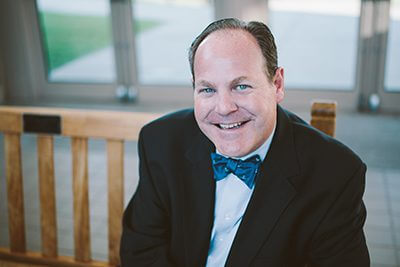 by Mark Segal, Upper School Director
by Mark Segal, Upper School Director
It is hard to believe that the annual MPA Halloween Parade is the culmination of months of planning and preparation. At some point early this past summer, my fourth-grade son, Logan, began to share with me how much he enjoys Halloween. An ardent Minnesota Vikings fan, he began to think about his costume and figured out a way to meld together his favorite Vikings player (Harrison Smith) and the Vikings mascot, Viktor the Viking. It is not about the candy, he would later share, but rather about the fun costumes that students get to wear and the high-fives he receives from the “older kids” as he follows the parade route through the building.
The all-school celebration of Halloween is one of the many school wide traditions that younger students get to share with older students at MPA. Mounds Park Academy is the only independent school in the Twin Cities that offers a PreK through 12 educational and community experience under one roof. I appreciate when prospective parents ask if being in an environment of mixed-age students is beneficial. I get to share that MPA wholeheartedly knows it is and explain the many ways in which this is the case. Being in a mixed-age community allows our students to be their best selves. Our Lower School students utilize their greatest communication skills and lessons learned from the CHAMP character education program in their interactions with older students and emulate their respectful, inclusive behavior. Our Upper School students respond appropriately to the fact that they are being carefully watched by the younger students and relish opportunities to act more child-like while still modeling appropriate behavior. And those in the middle? They find great joy and meaning through interacting with their younger friends as they look ahead to becoming campus-wide leaders as older students.
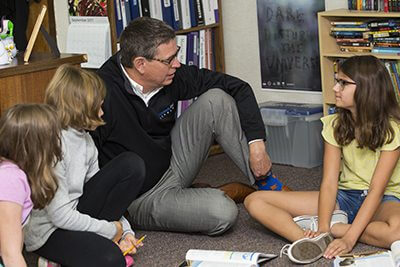 by Dr. Bill Hudson, Head of School
by Dr. Bill Hudson, Head of School Congratulations to Rachel Lindrud/Sofia Walker and Annika Ide/Gabby Law who represented MPA deep into the Section Finals in Doubles Tennis. Rachel and Sofia took second in the Section and will advanced to the State Tournament and Annika/Gabby took fourth place. The competition was strong and all four players left it all out on the court. This is the first time since 2011 that MPA has had a team in the State Tournament. Go Panthers!
Congratulations to Rachel Lindrud/Sofia Walker and Annika Ide/Gabby Law who represented MPA deep into the Section Finals in Doubles Tennis. Rachel and Sofia took second in the Section and will advanced to the State Tournament and Annika/Gabby took fourth place. The competition was strong and all four players left it all out on the court. This is the first time since 2011 that MPA has had a team in the State Tournament. Go Panthers!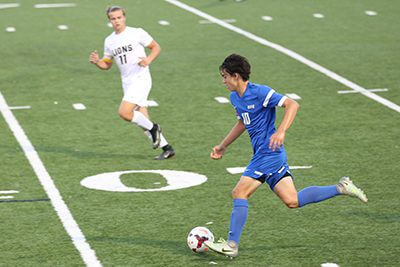 Senior Captain Nicholas Guiang was named to the Minnesota High School Soccer Coaches Association All State Second Team at the MSHSSCA All State Banquet on Sunday at the River Centre in St. Paul! A four-year varsity starter, Guiang tallied nine goals and seven assists this season, both tops on the team. He led the Panthers to the Section 4A Quarterfinals. He is the second member of his family to be named to the All State Second Team—his older brother Eric ’14 earned All State Second Team in 2013. Read more about this family in MPA Now, arriving in homes in early November.
Senior Captain Nicholas Guiang was named to the Minnesota High School Soccer Coaches Association All State Second Team at the MSHSSCA All State Banquet on Sunday at the River Centre in St. Paul! A four-year varsity starter, Guiang tallied nine goals and seven assists this season, both tops on the team. He led the Panthers to the Section 4A Quarterfinals. He is the second member of his family to be named to the All State Second Team—his older brother Eric ’14 earned All State Second Team in 2013. Read more about this family in MPA Now, arriving in homes in early November.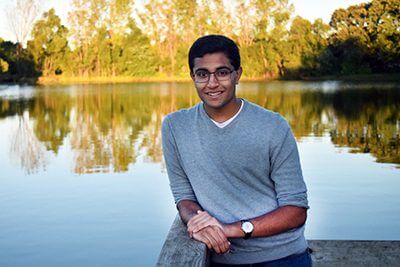 What do you love about MPA?
What do you love about MPA?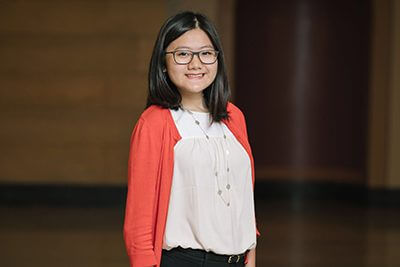 What do you love about MPA?
What do you love about MPA?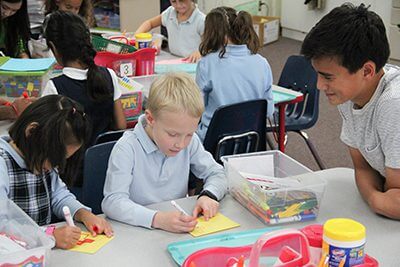 The first grade and Upper School Student Council have teamed up to host the MPA Blood Drive as their service project for the year. Not only is it exciting for the students to work with each other across divisions, but they are enthusiastic about supporting an important cause.
The first grade and Upper School Student Council have teamed up to host the MPA Blood Drive as their service project for the year. Not only is it exciting for the students to work with each other across divisions, but they are enthusiastic about supporting an important cause.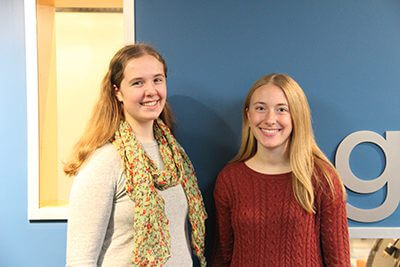 Each year, 1.6 million students take the PSAT in October of their junior year. Those with the highest PSAT Selection Index scores are recognized for their outstanding performance, including MPA seniors Alissa Krohn and Sarah Ley. Both were honored with recognition from the National Merit Scholarship Corporation. MPA is proud to have two students recognized for their “exceptional academic promise.”
Each year, 1.6 million students take the PSAT in October of their junior year. Those with the highest PSAT Selection Index scores are recognized for their outstanding performance, including MPA seniors Alissa Krohn and Sarah Ley. Both were honored with recognition from the National Merit Scholarship Corporation. MPA is proud to have two students recognized for their “exceptional academic promise.”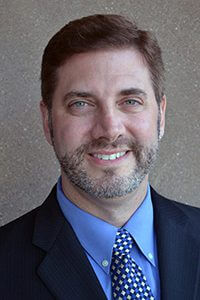 Please mark your calendars and plan to attend this event on Thursday, October 5, 6:30-8 PM in the Recital Hall. Dr. Todd A. Savage, MPA parent and professor of school psychology at the University of Wisconsin-River Falls, and Dr. Scott Woitaszewski, also a professor of school psychology at UWRF, will be sharing a research- and evidence-based presentation that will further inform and equip our community regarding youth suicide awareness. They will help us all to be proactive and to understand the issue better, provide tips on what to look for in students, and give tools and resources to utilize if concerns arise. The final 15 minutes of the time together will be open for questions and answers and will allow MPA to share the resources that exist on our campus. The presentation is geared toward Middle and Upper School families; however, Lower School families are more than welcome to attend, as well. Note: This presentation will be similar to the one given in May. No RSVP needed.
Please mark your calendars and plan to attend this event on Thursday, October 5, 6:30-8 PM in the Recital Hall. Dr. Todd A. Savage, MPA parent and professor of school psychology at the University of Wisconsin-River Falls, and Dr. Scott Woitaszewski, also a professor of school psychology at UWRF, will be sharing a research- and evidence-based presentation that will further inform and equip our community regarding youth suicide awareness. They will help us all to be proactive and to understand the issue better, provide tips on what to look for in students, and give tools and resources to utilize if concerns arise. The final 15 minutes of the time together will be open for questions and answers and will allow MPA to share the resources that exist on our campus. The presentation is geared toward Middle and Upper School families; however, Lower School families are more than welcome to attend, as well. Note: This presentation will be similar to the one given in May. No RSVP needed.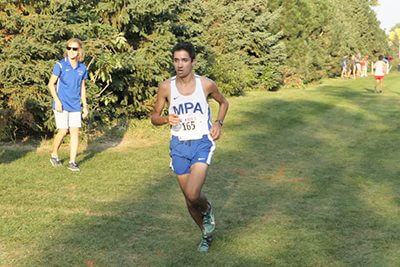 MPA Senior and lifer Declan Dahlberg was named as one of the Star Tribune’s Prep Athletes Of The Week!
MPA Senior and lifer Declan Dahlberg was named as one of the Star Tribune’s Prep Athletes Of The Week!